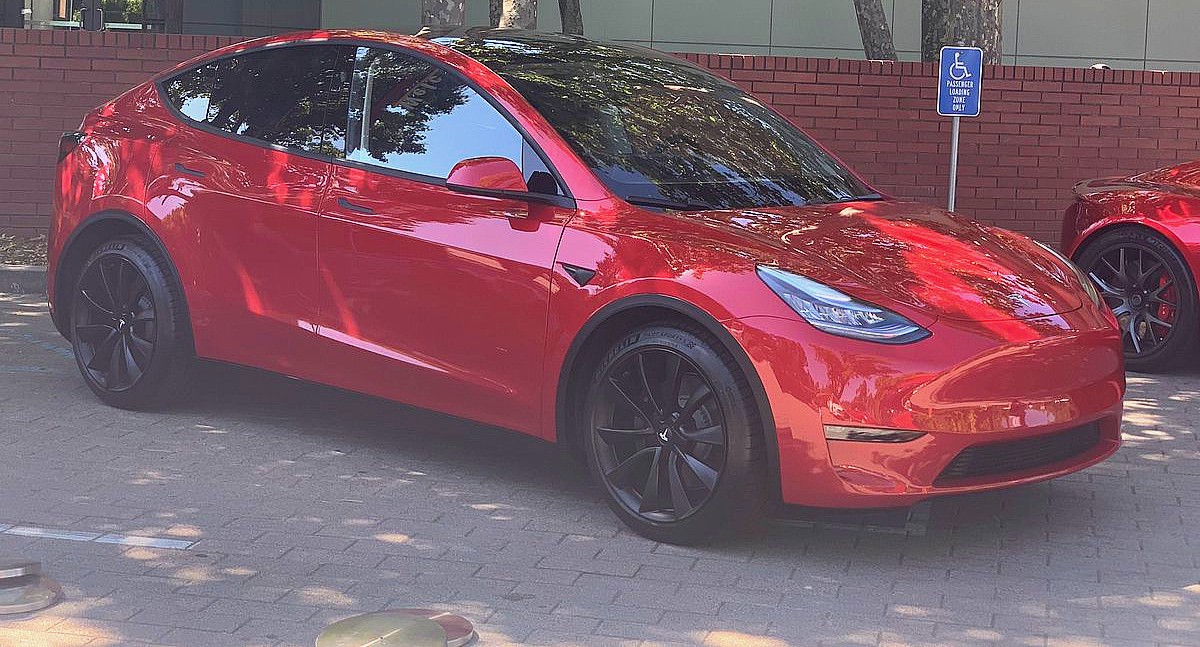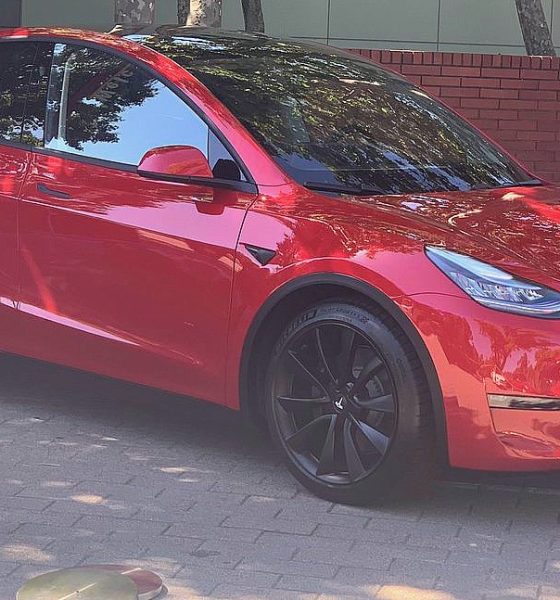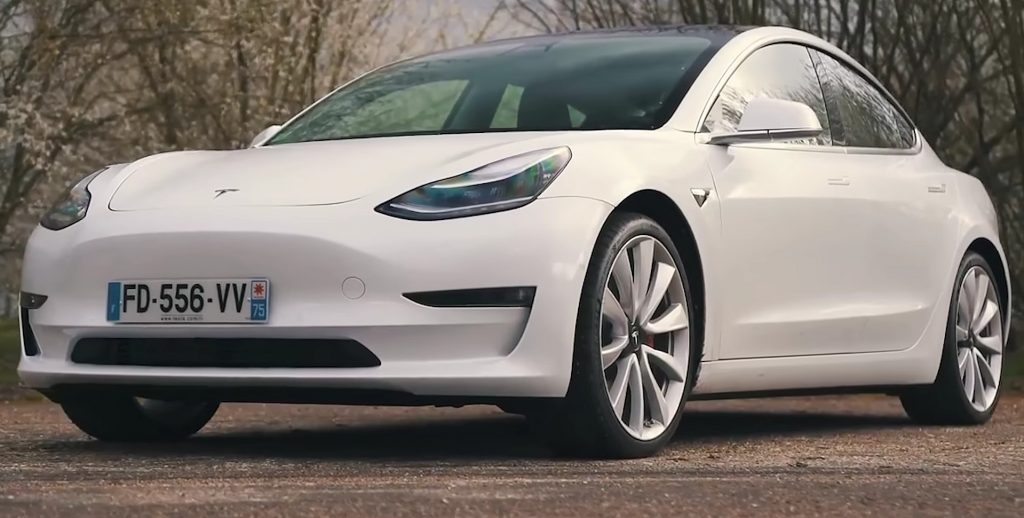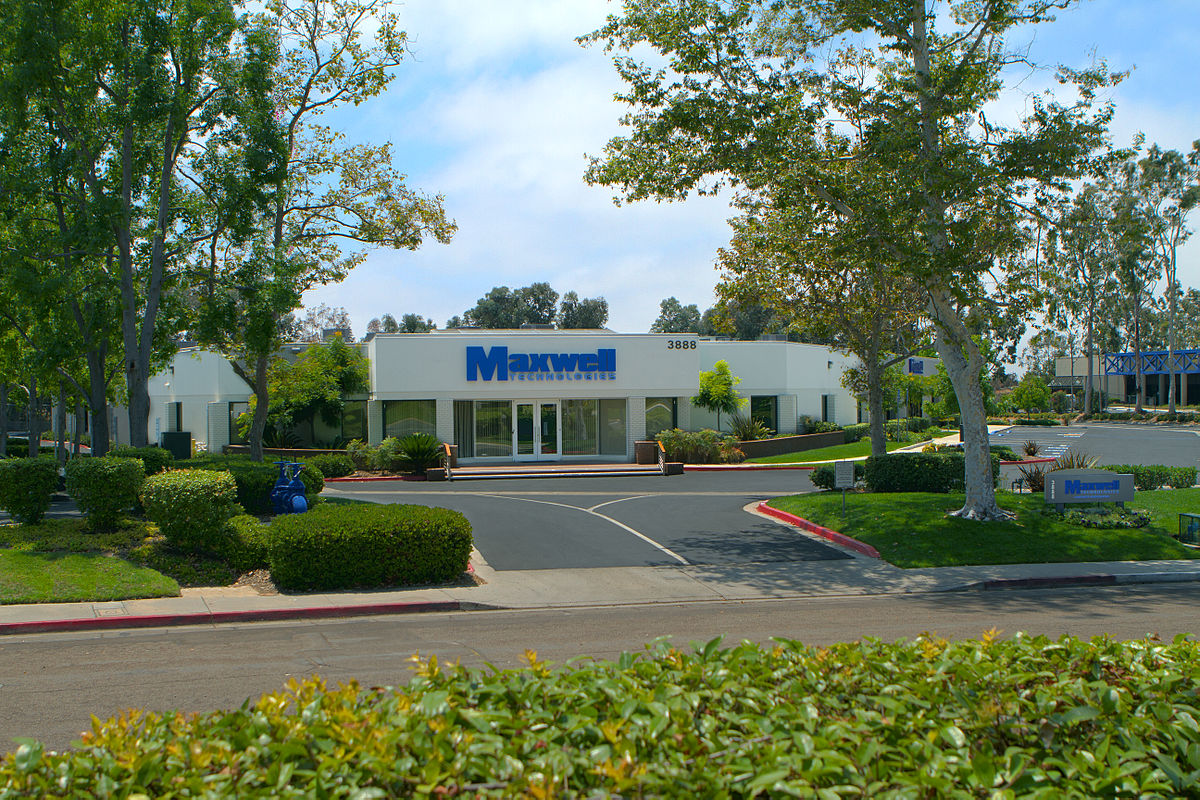

Investor's Corner
Auto experts share insights on Tesla Model Y wiring and how Maxwell’s supercapacitors can improve batteries
There is no doubt that the adoption of electric vehicles is already underway. Key auto markets such as China and Europe have adopted aggressive goals for a zero-emissions future, and electric cars continue to improve with every iteration. Yet, inasmuch as the EV segment has grown since the early days of the original Tesla Roadster, the evolution of electric cars is only just beginning. Over the years, there will be more breakthroughs for all-electric propulsion, and automakers that refuse to acknowledge this will probably find themselves in dire straits.
These, as well as the upcoming EV technologies that are set to make a debut within the next few years, was the focus of an extensive interview with Sandy Munro and Mark Ellis from Munro and Associates. Conducted by Tesla owner-enthusiast Sean Mitchell of All Things EV, the interview touched on several topics, including the breakthroughs that will likely be seen in the Model Y crossover, the potential of Maxwell’s supercapacitors for electric vehicles, and what traditional automakers can do to be more competitive in the emerging EV market.
Munro, who has extensive experience with the early-build Model 3 and several other vehicles like the BMW i3 and the Jaguar I-PACE, noted that the EV he is most excited about is the Model Y. Munro noted that the Y will be an interesting EV because it would likely show just how much Tesla learned from the Model 3 and its challenging ramp. The teardown expert also stated that he is immensely interested to see just what Tesla did to reduce the wiring of the Model Y to 100 meters from 1.5 km in the Model 3.

One thing that Munro and Ellis emphasized in the interview was that when it comes to electric cars, battery technology is key. Munro noted that at this point, any company that aims to push EV batteries further would best be advised to take on emerging technologies such as supercapacitors, which could have great implications for electric car technology. This is where Tesla’s acquisition of Maxwell Technologies could come into play. Maxwell, after all, is primarily noted for two of its innovations: dry electrode batteries and supercapacitors.
Both of these have the potential to improve Tesla’s electric cars significantly. “The dry battery technology is game-changing if it comes to pass and they can put it in a car,” Ellis said while discussing Maxwell’s potential for Tesla. The veteran also provided a scenario where Maxwell’s supercapacitors could play a part in the operation of an EV.
“One of the issues with the battery is, when I step on the throttle hard, I’m pulling a lot of energy from the battery. And then, when I brake hard, I’m pulling a lot of energy out of the regen, but the batteries can’t take it fast enough. The batteries get really stressed when you try to pull it up too much, so if I had supercapacitors that I could use as a cushion; so when I need energy quickly, (I can) pull it from the supercapacitors and then fill the supercapacitors back up with the battery slowly; and then when I brake, I can capture more of that regen energy and do the supercapacitors faster. I think that just makes logical sense, because now all of a sudden I’ve got a sponge in front of my main energy source and I’m not stressing (the battery) so much,” Ellis said.

As for the underwhelming range from competing EVs such as the Audi e-tron and the Jaguar I-PACE, Munro noted that this is simply because of their lack of vertical integration. “(It’s) because they’re buying them from somebody else,” the teardown expert mused. When asked if a good way for traditional automakers to be more competitive in the EV market is to start developing their own battery tech, Ellis warns that adopting such a strategy will likely take a long time.
“That would be a 10-year project. There are going to be leaders in the battery industry, and a lot of the electric chemistries are under patent. They’re gonna have to be licensed. Whoever comes out on top is probably going to win. But just due to the sheer volume of batteries that are going to be needed in the next five years, you basically have three or four battery (cell) companies that are out there. You got Panasonic, you got Samsung, you got LG, and you’ve CATL from China. Those are the big four. Everybody else is going to find a niche in there,” Elli said.
With companies such as Tesla already making headway into the mass market with vehicles like the Model 3 and the upcoming Model Y, it would be easy to perceive the EV segment as having sufficiently matured. It should be noted that this is not the case, as EVs, including Tesla’s electric vehicles like the 370-mile Model S Long Range or the bang-for-the-buck Model 3 Standard Range Plus, still have far more to improve in the years to come. And it is exactly these improvements that make the electric car market just so compelling.
Watch Sean Mitchell’s extensive sit-down interview with Sandy Munro and Mark Ellis in the video below.

Investor's Corner
Tesla price target boost from its biggest bear is 95% below its current level

Tesla stock (NASDAQ: TSLA) just got a price target boost from its biggest bear, Gordon Johnson of GLJ Research, who raised his expected trading level to one that is 95 percent lower than its current trading level.
Johnson pushed his Tesla price target from $19.05 to $25.28 on Wednesday, while maintaining the ‘Sell’ rating that has been present on the stock for a long time. GLJ has largely been recognized as the biggest skeptic of Elon Musk’s company, being particularly critical of the automotive side of things.
Tesla has routinely been called out by Johnson for negative delivery growth, what he calls “weakening demand,” and price cuts that have occurred in past years, all pointing to them as desperate measures to sell its cars.
Johnson has also said that Tesla is extremely overvalued and is too reliant on regulatory credits for profitability. Other analysts on the bullish side recognize Tesla as a company that is bigger than just its automotive side.
Many believe it is a leader in autonomous driving, like Dan Ives of Wedbush, who believes Tesla will have a widely successful 2026, especially if it can come through on its targets and schedules for Robotaxi and Cybercab.
Justifying the price target this week, Johnson said that the revised valuation is based on “reality rather than narrative.” Tesla has been noted by other analysts and financial experts as a stock that trades on narrative, something Johnson obviously disagrees with.
Dan Nathan, a notorious skeptic of the stock, turned bullish late last year, recognizing the company’s shares trade on “technicals and sentiment.” He said, “From a trading perspective, it looks very interesting.”
Tesla bear turns bullish for two reasons as stock continues boost
Johnson has remained very consistent with this sentiment regarding Tesla and his beliefs regarding its true valuation, and has never shied away from putting his true thoughts out there.
Tesla shares closed at $431.40 today, about 95 percent above where Johnson’s new price target lies.
Investor's Corner
Tesla gets price target bump, citing growing lead in self-driving

Tesla (NASDAQ: TSLA) stock received a price target update from Pierre Ferragu of Wall Street firm New Street Research, citing the company’s growing lead in self-driving and autonomy.
On Tuesday, Ferragu bumped his price target from $520 to $600, stating that the consensus from the Consumer Electronics Show in Las Vegas was that Tesla’s lead in autonomy has been sustained, is growing, and sits at a multiple-year lead over its competitors.
CES 2026 validates Tesla’s FSD strategy, but there’s a big lag for rivals: analyst
“The signal from Vegas is loud and clear,” the analyst writes. “The industry isn’t catching up to Tesla; it is actively validating Tesla’s strategy…just with a 12-year lag.”
The note shows that the company’s prowess in vehicle autonomy is being solidified by lagging competitors that claim to have the best method. The only problem is that Tesla’s Vision-based approach, which it adopted back in 2022 with the Model 3 and Model Y initially, has been proven to be more effective than competitors’ approach, which utilizes other technology, such as LiDAR and sensors.
Currently, Tesla shares are sitting at around $433, as the company’s stock price closed at $432.96 on Tuesday afternoon.
Ferragu’s consensus on Tesla shares echoes that of other Wall Street analysts who are bullish on the company’s stock and position within the AI, autonomy, and robotics sector.
Dan Ives of Wedbush wrote in a note in mid-December that he anticipates Tesla having a massive 2026, and could reach a $3 trillion valuation this year, especially with the “AI chapter” taking hold of the narrative at the company.
Ives also said that the big step in the right direction for Tesla will be initiating production of the Cybercab, as well as expanding on the Robotaxi program through the next 12 months:
“…as full-scale volume production begins with the autonomous and robotics roadmap…The company has started to test the all-important Cybercab in Austin over the past few weeks, which is an incremental step towards launching in 2026 with important volume production of Cybercabs starting in April/May, which remains the golden goose in unlocking TSLA’s AI valuation.”
Tesla analyst breaks down delivery report: ‘A step in the right direction’
Tesla has transitioned from an automaker to a full-fledged AI company, and its Robotaxi and Cybercab programs, fueled by the Full Self-Driving suite, are leading the charge moving forward. In 2026, there are major goals the company has outlined. The first is removing Safety Drivers from vehicles in Austin, Texas, one of the areas where it operates a ride-hailing service within the U.S.
Ultimately, Tesla will aim to launch a Level 5 autonomy suite to the public in the coming years.
Investor's Corner
Tesla Q4 delivery numbers are better than they initially look: analyst
The Deepwater Asset Management Managing Partner shared his thoughts in a post on his website.

Longtime Tesla analyst and Deepwater Asset Management Managing Partner Gene Munster has shared his insights on Tesla’s Q4 2025 deliveries. As per the analyst, Tesla’s numbers are actually better than they first appear.
Munster shared his thoughts in a post on his website.
Normalized December Deliveries
Munster noted that Tesla delivered 418k vehicles in the fourth quarter of 2025, slightly below Street expectations of 420k but above the whisper number of 415k. Tesla’s reported 16% year-over-year decline, compared to +7% in September, is largely distorted by the timing of the tax credit expiration, which pulled forward demand.
“Taking a step back, we believe September deliveries pulled forward approximately 55k units that would have otherwise occurred in December or March. For simplicity, we assume the entire pull-forward impacted the December quarter. Under this assumption, September growth would have been down ~5% absent the 55k pull-forward, a Deepwater estimate tied to the credit’s expiration.
“For December deliveries to have declined ~5% year over year would imply total deliveries of roughly 470k. Subtracting the 55k units pulled into September results in an implied December delivery figure of approximately 415k. The reported 418k suggests that, when normalizing for the tax credit timing, quarter-over-quarter growth has been consistently down ~5%. Importantly, this ~5% decline represents an improvement from the ~13% declines seen in both the March and June 2025 quarters.“
Tesla’s United States market share
Munster also estimated that Q4 as a whole might very well show a notable improvement in Tesla’s market share in the United States.
“Over the past couple of years, based on data from Cox Automotive, Tesla has been losing U.S. EV market share, declining to just under 50%. Based on data for October and November, Cox estimates that total U.S. EV sales were down approximately 35%, compared to Tesla’s just reported down 16% for the full quarter. For the first two months of the quarter, Cox reported Tesla market share of roughly a 65% share, up from under 50% in the September quarter.
“While this data excludes December, the quarter as a whole is likely to show a material improvement in Tesla’s U.S. EV market share.“








